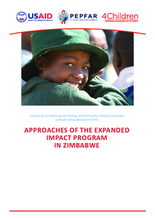Displaying 271 - 280 of 510
Similarities and differences in the (short-term) psychosocial development of children in foster care, family-style group care, and residential care were investigated in a sample of 121 Dutch children one year after their initial placement.
This is the first controlled study of an expressive arts group intervention with unaccompanied minor asylum seeking children. The aim of the study was to examine whether such an intervention may alleviate symptoms of trauma and enhance life satisfaction and hope.
This article reviews the contribution of psychology to knowledge on child protection and suggests opportunities for psychology to contribute more.
This study explores self-stigma in the utilization of mental health services while in foster care and whether the stigma developed while in foster care impacts mental health service use upon foster care exit.
This webinar series provides clinicians, counselors, and other helpers with insights on recognizing and dealing with the most difficult crises and turning points that occur in therapy with traumatized children and families.
This study sought to expand the literature on the comorbidity of foster care and substance abuse and mental illness by undertaking a secondary analysis of a large national cohort in the US.
This presentation will review the needs of traumatized children in foster care and appropriate clinical response, including diagnosis, treatment planning, and follow-up.
This document provides a full report of the workshop on “Depression in Children and Young Persons living in Alternative Care: Challenges and Possibilities.”
This paper examines the extent to which socioeconomic vulnerability, psychosocial service consultations, and preventative social services spending impacts the reunification for children placed in out-of-home care.
In this case study, Coordinating Comprehensive Care of Children (4Children) documents and evaluates the work of the World Education/Bantwana Expanded IMPACT program in Zimbabwe.


